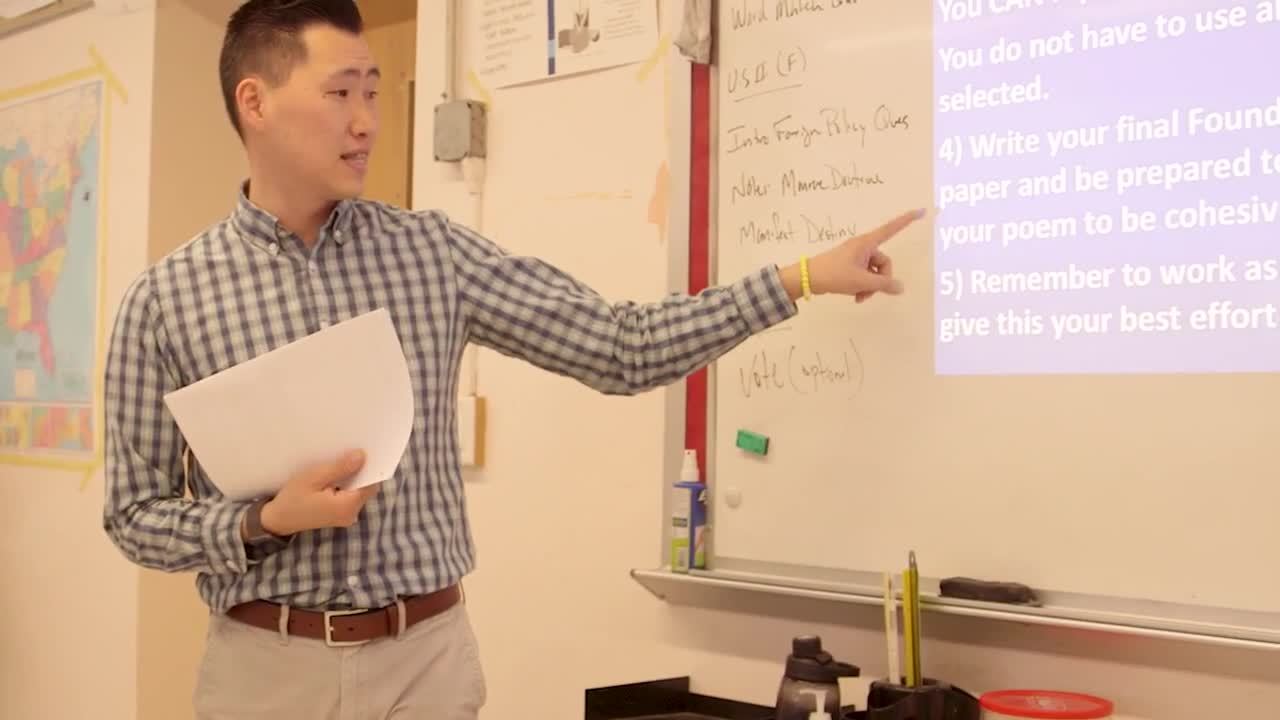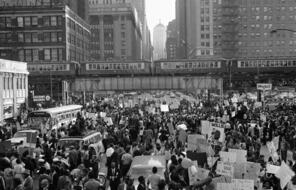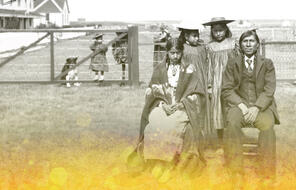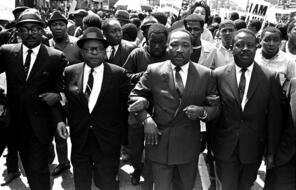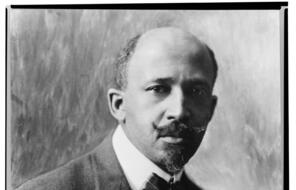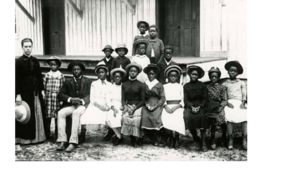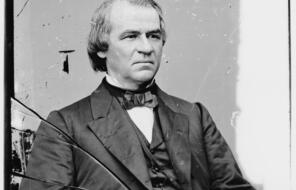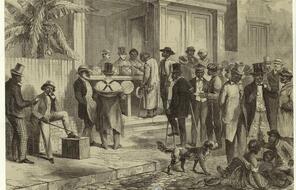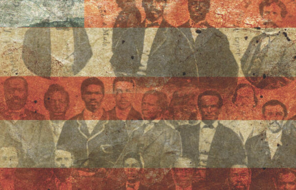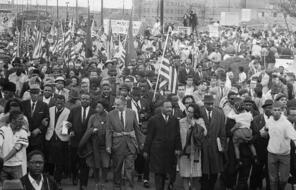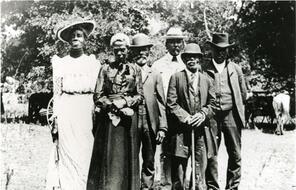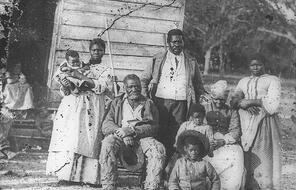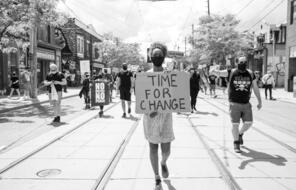[DENNY CONKLIN] Students are coming in today, and I've asked them to make a list of their keywords. They're going to use that list of words. They're going to construct a found poem using those words. So a found poem is a really great tool to use with students because it encourages them to take ideas, thoughts from readings, from their journals, from their notebook prompts and to collaboratively work with their group members to turn those words into something new. They're going to take all those words that they've collected, they're going to chat about those words with the groups that they're working in, and they're going to create a poem using those words. I'm going to show students an example of a found poem to help them see what one could look like. It takes away some of the nervousness around the idea of poetry, which sometimes freaks out students. They can repeat words as many times as they want to. They also can't add in new words that weren't in the reading or weren't in their journals. They have to use that as kind of their bank of vocabulary to construct this poem. It's a nice way for students to collaborate and to share ideas. It's also a nice, creative outlet for students to do something new. We've done a lot of journaling, but this is a nice creative opportunity. So what we're going to do today, when we're thinking about the legacy of the eugenics movement, is we're going to do a found poem activity. So let me hand out what you're going to do. Directions are on the board, but they're also on this sheet that I'm handing out. We're going to utilize our homework in order to work on this activity as well. And it'll be a nice opportunity for us to think about the topics that we've studied so far and why they are significant. Let's run through the directions for the whole activity first, and then we'll focus a little bit more on this sheet of paper that's in front of you. So what you're going to do is, as a group-- so the groups that you're sitting in-- you're going to take a look at the list of words you wrote for questions 1 and 5 on your homework assignment. So question 1 was asking you to identify some key words that Wallace was talking about in that reading, when he's talking about confronting the eugenics movement and standing up against eugenics movement. Question 5 was asking you to talk about words that came to mind when you think of your reaction to the eugenics movement. So you already have this wonderful bank of words that you've thought about for homework, so you're going to use that list of words and phrases to create a new poem. So you're going to take all the words of your group members, and you're going to use them to create something new, OK? A little bit of caution with the poem is that it doesn't have to rhyme. So that's good, that you don't have to make something that rhymes. It should roughly tie to this overall theme of, what is the legacy of the eugenics movement? So when we think about this thing that happened 100 years ago, how are we living with it today, why is it important, why do you even still learning about it today in school? Nick? [NICK] Are we going to be able to use outside words to make the sentences make sense? [DENNY CONKLIN] Nick, you are one step ahead of me. The rules and regulations for your found poem. Look here, Nick. You can only use words from your homework questions, the Daily Q that you answer today, and the question here above. You cannot add any other words, even articles or prepositions. So you got to use the words that your group members have. You can repeat words and phrases as much as you want. So you might repeat words or phrases to create emphasis on an idea. I mean, you don't have to use all the words and phrases that your group has. So I'm going to give you all a big piece paper and some markers, and you're going work as a group to make your poem about the legacy of the eugenics movement out of those words and phrases that you've chosen. You want it to be cohesive, and it should be at least eight lines long. We know this from thinking about our classroom norms. Work together as a group-- which you've done really well about so far-- listening to each other-- so through all the discussions and debates we've had, I know you're good at that already-- and just put in the best effort that you can. So I'm not asking for Shakespeare poetry, but just something that you feel good about. And you're going to surprise yourself with how good your poems are. So if you have questions, I will come around and I am happy to answer your questions. [STUDENT 1] I've got down demagogue, democracy, pseudoscience, tyranny, dictatorship, prosperity, glorification, mumbo jumbo-- [STUDENT 2] Mumbo jumbo. [STUDENT 1] Yeah. Exalted, extreme, erase, protest, danger, and threat. So those are-- [DENNY CONKLIN] I read your homework from last night, Josh. You made really good words. [STUDENT 3] For number 1, I did flourish, freedom, leadership, individualistic, contributions, and dignity. The found poems I thought went really, really well. Students were really receptive to jumping in and to getting to work, finding lists. They weren't scared off by the idea of writing poetry. One group was pretty intent on wanting theirs to rhyme, even though it didn't have to rhyme. The work that I solved from them I was really pleased with-- where their thought process was in terms of just the composition of the poem, where the words appeared on paper, and why you think about the progression of thoughts and ideas from beginning to end and selectively using words. I didn't have a chance to talk to them about this, but I do want to follow up with them about the fact that we learn from this experience of taking these words from people and making it into something else that words are powerful, language is powerful. And I think that they saw that just the sequence of five or six words can really convey a specific message. That's something that I'm hoping to follow up with and have them reflect a little bit more on that.
